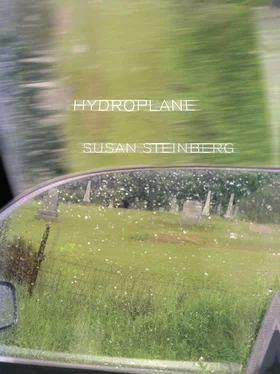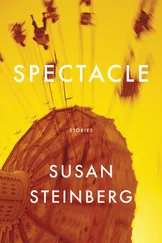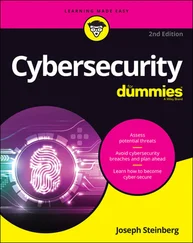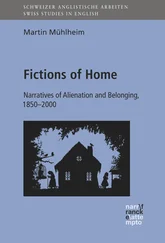Susan Steinberg - Hydroplane - Fictions
Здесь есть возможность читать онлайн «Susan Steinberg - Hydroplane - Fictions» весь текст электронной книги совершенно бесплатно (целиком полную версию без сокращений). В некоторых случаях можно слушать аудио, скачать через торрент в формате fb2 и присутствует краткое содержание. Год выпуска: 2006, Издательство: Fiction Collective 2, Жанр: Современная проза, на английском языке. Описание произведения, (предисловие) а так же отзывы посетителей доступны на портале библиотеки ЛибКат.
- Название:Hydroplane: Fictions
- Автор:
- Издательство:Fiction Collective 2
- Жанр:
- Год:2006
- ISBN:нет данных
- Рейтинг книги:4 / 5. Голосов: 1
-
Избранное:Добавить в избранное
- Отзывы:
-
Ваша оценка:
- 80
- 1
- 2
- 3
- 4
- 5
Hydroplane: Fictions: краткое содержание, описание и аннотация
Предлагаем к чтению аннотацию, описание, краткое содержание или предисловие (зависит от того, что написал сам автор книги «Hydroplane: Fictions»). Если вы не нашли необходимую информацию о книге — напишите в комментариях, мы постараемся отыскать её.
Hydroplane: Fictions — читать онлайн бесплатно полную книгу (весь текст) целиком
Ниже представлен текст книги, разбитый по страницам. Система сохранения места последней прочитанной страницы, позволяет с удобством читать онлайн бесплатно книгу «Hydroplane: Fictions», без необходимости каждый раз заново искать на чём Вы остановились. Поставьте закладку, и сможете в любой момент перейти на страницу, на которой закончили чтение.
Интервал:
Закладка:
He was with a date in the city. She worked in my father's factory.
He said, She's the best looking one. Her hair. It's danger.
Hot to fucking trot, he said.
Before the date, he took me and my brother for a ride in the sports car around the hotels. The tires squealed. My brother screamed when the car went faster.
My father said, That's right, son. He said, This is the life.
He stopped the car outside the hotel. He said, This is your stop. He said, I've got a date. He said, Hot to trot. He slapped my brother on the back. Be good, he said.
We were in his office the following morning. My father had spent the night in the office. He had called us before he went to sleep. He said, I'm working late. Go to sleep, he said. But we watched TV instead.
In the morning the concierge knocked on the door. He said, Let's go. We would ride in the limo to my father's factory. The limo was better than the sports car. We could see out the windows of the limo, but no one could see us in it. People always tried to see inside. Kids pushing their bikes up the street. Ladies in cars beside us. When I gave them the finger my brother laughed.
There were plates of eggs and fruit on a table in my father's office, but we didn't eat. My father had two black eyes, a blood-crusted nose. His words sounded thick and slurred.
He said, I was barely out of the car and this guy, he grabbed me. He punched me. I fell backward to the street. And my nose was bleeding like hell.
He and the date were getting some drinks in the city.
I'm allowed, he said.
He said, Isn't that right, son. He looked at my brother who looked at the silver pitcher on the table. The pitcher curved inward then out. On the inward, things looked upside-down. My brother and I liked to look at ourselves in the pitcher. We looked wild and snake-haired and monstrous.
It wasn't a pitcher you put things in.
My father said, Don't touch the pitcher.
He said, Touch it and die.
He was looking at me.
Five hundred dollars, he said, it cost me.
Keep off it, he said.
I didn't touch it, I said.
You were about to, he said.
My brother couldn't look at my father's face. I had to look.
My father said, A knuckle sandwich. Pow, he said.
He nudged my brother and said, Pow.
My father said, She liked the car. Of course she liked the car, he said. They all like the car. She turned everything on. The radio. Click. The heater. Click. He said, Click click click, and looked at my brother to make him laugh. Click, he said and poked my brother in the gut.
My brother got up from the table and sat on the floor.
My father said, A son of a gun.
When the filters filled with dust they were trashed. Then the trash was poured into landfills. And landfills were full of rats. My father should have known this. He went to school. He should have known about landfills. And about rats. How these rats had very sharp teeth. How they could find the filters in the landfills. How they could chew straight through the filters.
You're crazy, said my father.
He said to my brother, Your sister's crazy.
My brother laughed.
But I knew dangerous dust was released by rats.
It became a part of the air again.
My brother wasn't retarded. He just couldn't learn right. His brain made things backward. Like his right and left. And telling time. And he couldn't tie shoes. He wore slip-on sneakers. The kind with the Velcro. They always looked crooked, too big for his feet.
It's a phase, said my father.
He's a genius, he said.
But my brother and I knew better. His brain was our secret. Only he and I knew how truly fucked up it was.
My father said, It's because of your mother.
She was sick, then dead.
But that wasn't it.
The masks were sewn in a factory on the island. The factory was small and made only masks. Bigger factories made the filters. These were in Baltimore and I had been to these factories with my brother. They were big and full of workers working big machines. The workers were men who smoked while they worked. No one talked. They didn't like me and my brother running around. We tried to push buttons on the machines when the men weren't looking, and my brother would squeal like a fucking retard and the men would say to my father, Get these kids out, and come walking at us in a slow monster way that made my brother squeal even harder, and I was the one to tell the workers to get back to work, and they laughed at me, like, Who the fuck does she think she is, but they knew who I was.
At some point they would be working for me.
We all liked the island factory better. The workers on the island were ladies who spoke Spanish and played with my brother's hair. My father went to the island over the summers. It used to be he went alone. But now he had to take us.
Weekends we stood in the ocean. We collected snails in a bucket and raced them on the sand. My father slept on a chair. We put snails on my father's feet to make him jump. He said, What the hell. He didn't shave on the weekends. The ladies around him laughed when he jumped.
There were crazy kids who climbed the palms. They picked coconuts and split them up with a knife. They sold them one for a dollar to me and my brother. They told us we were stupid fucks. They said, They're free if you climb the tree. Neither of us could climb a tree with no branches. They said we were rich white fucks. We already knew this. The boys didn't wear shoes or shirts. They're free, they said. But we gave them the dollars.
My father called the kids the Coco Locos.
He said, Keep away from those dirty kids.
We went weekdays to my father's office. It had a glass door. On the other side of the door was the factory. We could see the ladies hunched over their tables, sewing masks. The ladies couldn't see us in the office though. The door was like the limo windows. I liked to be on the unmirrored side. Though sometimes I couldn't help it. Sometimes there were limos with other people in them. And I was with my brother on the mirrored side. We were playing on the hotel sidewalk. And I wanted to look in the mirror. But I knew better than to look too hard. Even my brother knew someone could be giving the finger.
When the ladies used the mirror to fix their lipstick, my father stood on our side and said, Stupid estupidos. Sometimes he opened the door into the ladies. Sometimes he said something funny like, Working hard I see.
The ladies took breaks from sewing masks. There was pan de agua and coffee. They prayed before eating by closing their eyes and moving their lips.
They're devout, said my father. De-vout. Good ones, he said.
I had heard my father ask the ladies to dinners. Lucky you darling, my father would say. Good food darling. Buena comida.
I'm allowed, he would say to me and my brother.
I had seen my father touch the ladies. I had seen him touch their asses.
My father's coffee was the blackest made in his own pot. The ladies spooned him sugar.
Some ladies wore masks after eating their pan de agua. The factory air was dusty.
Once I said, Funny.
My father said, What.
Dust, I said. Here.
He said, You don't know funny.
In Baltimore was the park on the hill where under the sand was wet.
China, I said, if you dig deep enough.
My brother's sneakers never looked right.
There were days I could barely look at him.
In the park were monkey bars. Rusted swing sets.
There was a slide where we slid into sand.
My brother and I went to the park after school. The monkey bars at the park were higher than the ones in the schoolyard. We perched on the monkey bars and watched the sunset. The sky turned orange. Then back to blue. We could see the whole city lighted below. We never talked. We sometimes heard gunshots. We mostly listened to traffic.
Читать дальшеИнтервал:
Закладка:
Похожие книги на «Hydroplane: Fictions»
Представляем Вашему вниманию похожие книги на «Hydroplane: Fictions» списком для выбора. Мы отобрали схожую по названию и смыслу литературу в надежде предоставить читателям больше вариантов отыскать новые, интересные, ещё непрочитанные произведения.
Обсуждение, отзывы о книге «Hydroplane: Fictions» и просто собственные мнения читателей. Оставьте ваши комментарии, напишите, что Вы думаете о произведении, его смысле или главных героях. Укажите что конкретно понравилось, а что нет, и почему Вы так считаете.












